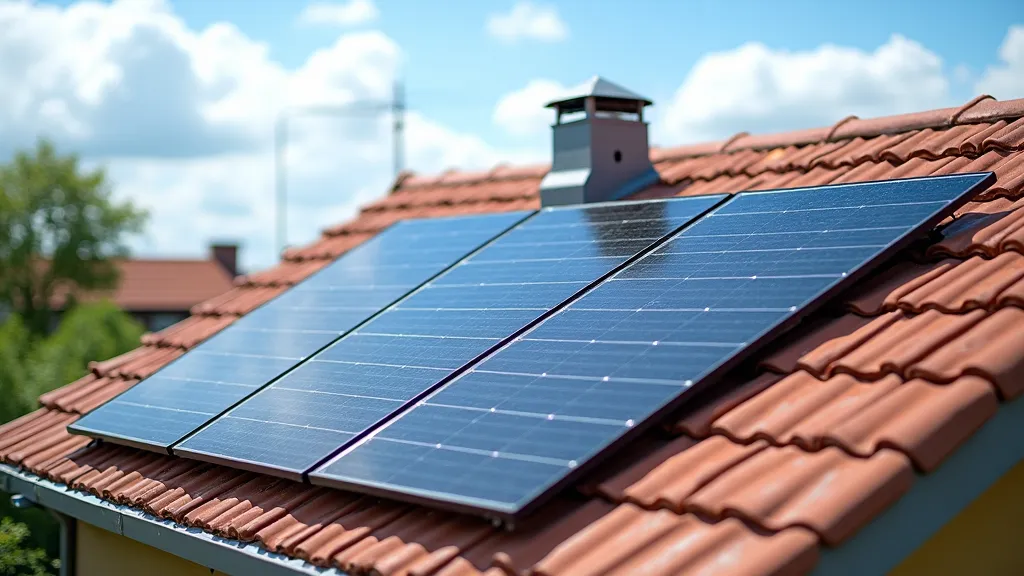This article delves into the world of solar panel installations, providing insights into finding affordable options and understanding government-funded programs. Solar panel installers play a crucial role in the transition to renewable energy, offering expertise in setting up solar systems that harness sunlight to generate electricity, thus promoting sustainability and reducing energy costs.

The transition towards renewable energy sources has seen a significant rise in the demand for solar panel installers. These professionals are pivotal in setting up solar systems that convert sunlight into electricity, offering both environmental benefits and cost savings. In this guide, we will explore how to find affordable solar panels and the available government-funded programs that can aid in making solar energy more accessible. Furthermore, we will delve into the skills required to become a solar panel installer and the future outlook of this profession in the renewable energy sector.
When embarking on the journey to solar energy, affordability is a common concern. Here are some steps to help you find cost-effective solar panels:
| Website | Specialization | Additional Information |
|---|---|---|
| Renogy | Solar energy solutions | Offers discounts and special offers |
| Solar Panel Store | Solar products and accessories | Variety of brands and second-hand options |
| SolarReviews | Research tool | Reviews and comparisons of panels and installers |
source: [Renogy](www.renogy.com), [Solar Panel Store](www.solarpanelstore.com), [SolarReviews](https://www.solarreviews.com/)
Many English-speaking countries offer government-funded programs that provide financial incentives for solar panel installations. Understanding these programs can significantly reduce the initial costs associated with solar energy.
The Federal Solar Investment Tax Credit (ITC) is a crucial program that allows homeowners and businesses to receive a tax credit for a portion of the cost of installing a solar system. For 2024, this credit is set at 30% but is expected to decrease in the coming years. Eligible participants include both residential and commercial solar systems, and applications can be made through the IRS when filing taxes. This means that for every $10,000 spent on a solar installation, a homeowner can receive a tax credit of up to $3,000, significantly lowering the overall expenditure.
Many utility companies provide cash incentives, discount programs, and community solar projects. These initiatives allow individuals to participate in solar energy without needing to install panels on their properties. For instance, community solar programs enable customers to buy into a shared solar facility and benefit from the energy produced, which can be particularly advantageous for those who cannot install solar panels on their rooftops due to space or structural limitations.
Programs like the Property Assessed Clean Energy (PACE) offer financing options through property tax assessments, making repayment manageable over time. PACE financing allows homeowners to finance energy efficiency upgrades and renewable energy installations and pay for them over time through their property taxes. This can ease the upfront financial burden and make the transition to solar energy more feasible.
Numerous states and nonprofit organizations provide solar incentives specifically for low-income families, including affordable or discounted installations and low-interest loans. Programs such as the Low-Income Home Energy Assistance Program (LIHEAP) often include provisions for solar energy initiatives, making it easier for disadvantaged households to access renewable energy solutions and reduce their utility costs.
The role of a solar panel installer extends beyond simply placing panels on roofs. Installers are responsible for assessing the site, determining the best configuration for the solar system, and ensuring that the installation meets local codes and regulations. A typical day for an installer may include the following tasks:
Becoming a solar panel installer requires a mix of technical skills and personal attributes. Here are some essential skills for aspiring installers:
The solar industry is on the brink of exponential growth as governments push for renewable energy adoption and consumers seek sustainable options. According to recent reports, the demand for solar panel installers is projected to grow significantly in the coming years. This growth is driven by various factors:
Disclaimer: The above information comes from online resources, and the data is as of October 2023. For more information, please refer to the official website.
Reference Links:
Explore the Tranquil Bliss of Idyllic Rural Retreats

Ultimate Countdown: The 20 Very Legendary Gaming Consoles Ever!

Understanding Halpin and its Influence

Affordable Full Mouth Dental Implants Near You

Discovering Springdale Estates

Illinois Dentatrust: Comprehensive Overview

Embark on Effortless Adventures: Unveiling the Top in Adventures Made Easy Outdoor Equipment

Unveiling Ossur Valves: Innovation in Prosthetics

Unlock the Full Potential of Your RAM 1500: Master the Art of Efficient Towing!
